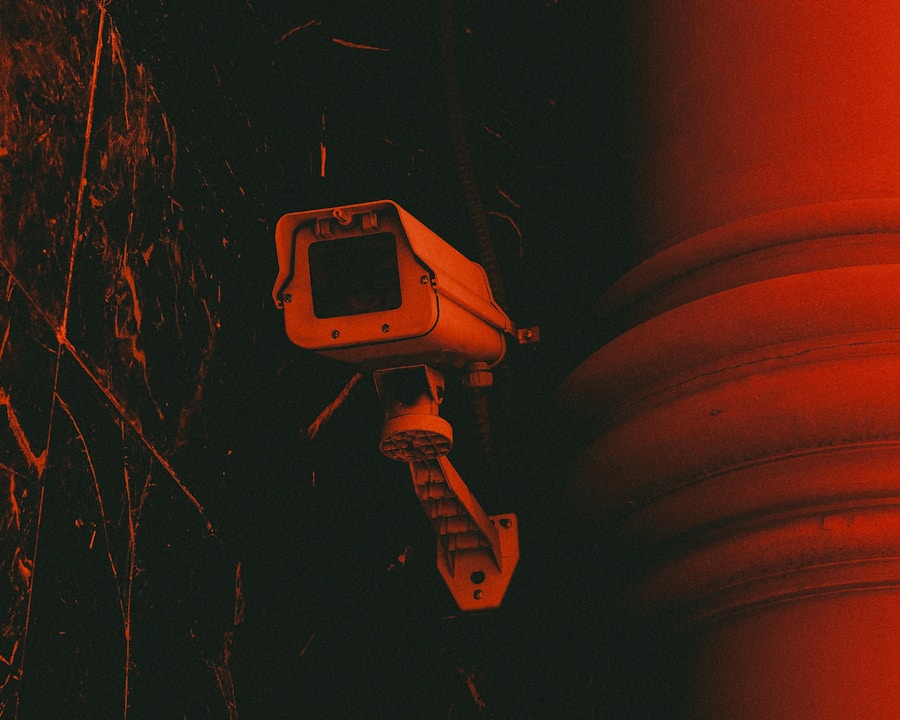In today’s digital age, where technology is constantly evolving and privacy is becoming increasingly difficult to maintain, it can be challenging to distinguish between paranoia and actual spying behavior. The line between being cautious and being paranoid can often become blurred, leading to confusion and anxiety in relationships. It is crucial to recognize the difference between genuine concerns and unfounded suspicions in order to maintain healthy relationships and protect our mental well-being.
The impact of spying on relationships cannot be underestimated. It erodes trust, creates a toxic environment, and can lead to emotional and psychological distress. Being constantly monitored or feeling like you are under surveillance can cause anxiety, stress, and a sense of powerlessness. It is important to address these issues head-on and seek support if you suspect that you are being spied on.
The Narcissistic Personality: What It Means for Your Relationship
One common characteristic of someone who engages in spying behavior is having a narcissistic personality. Narcissists have an inflated sense of self-importance, a deep need for admiration, and a lack of empathy for others. They often believe they are entitled to special treatment and will go to great lengths to maintain control over their partners.
In a narcissistic relationship, power and control play a significant role. Spying becomes a tool for the narcissist to exert dominance over their partner and maintain their sense of superiority. By invading their partner’s privacy, they gain a sense of power and control over them. This behavior is not only damaging to the relationship but also deeply harmful to the victim’s mental health.
The Motivations Behind Spying: Control, Insecurity, and Manipulation
There are several reasons why someone may engage in spying behavior within a relationship. One common motivation is the desire for control. Spying allows the individual to monitor their partner’s every move, ensuring that they have complete knowledge and control over their actions. This need for control often stems from deep-seated insecurities and a fear of abandonment.
Insecurity is another driving force behind spying behavior. Individuals who feel insecure in their relationships may resort to spying as a way to alleviate their fears and anxieties. By constantly monitoring their partner, they hope to find reassurance and validation. However, this behavior only serves to further erode trust and create a toxic dynamic.
Manipulation is also a key factor in spying behavior. By invading their partner’s privacy, the spy gains information that can be used to manipulate and control them. They may use this information to exploit their partner’s vulnerabilities, gaslight them, or exert power over them. This manipulation tactic further reinforces the power dynamic within the relationship and can have devastating effects on the victim’s mental health.
Signs of Spying: Unusual Behavior, Secretive Actions, and Constant Monitoring
It is important to be aware of the warning signs that may indicate that your partner is engaging in spying behavior. Some red flags to look out for include unusual behavior, such as sudden changes in their routine or unexplained absences. They may also exhibit secretive actions, such as hiding their phone or computer, or being overly protective of their personal belongings.
Constant monitoring is another telltale sign of spying behavior. If your partner is constantly checking your phone, tracking your whereabouts, or demanding access to your social media accounts, it is a clear violation of your privacy and a sign that they do not trust you. Trust is the foundation of any healthy relationship, and constant monitoring erodes that trust.
It is important to trust your instincts and recognize these warning signs. If something feels off or you suspect that you are being spied on, it is crucial to address the issue head-on and seek support.
Gaslighting: How Your Partner May Be Trying to Make You Doubt Your Own Perception
Gaslighting is a manipulation tactic often used by individuals who engage in spying behavior. It involves making the victim doubt their own perception of reality, causing them to question their sanity and judgment. Gaslighting can be incredibly damaging to one’s mental health and self-esteem.
In the context of spying, gaslighting may involve the spy denying their actions or manipulating the evidence to make it seem like the victim is imagining things. They may make the victim feel guilty or paranoid for questioning their behavior, further exacerbating their feelings of insecurity and self-doubt.
Gaslighting is a form of emotional abuse and should never be tolerated in a relationship. If you suspect that you are being gaslit, it is important to seek support from trusted friends, family, or professionals who can help you navigate this difficult situation.
Technology and Spying: The Dangers of Social Media, GPS Tracking, and Other Digital Tools
With the prevalence of technology in our daily lives, it has become easier than ever for individuals to engage in spying behavior. Social media platforms, GPS tracking devices, and other digital tools provide ample opportunities for someone to invade their partner’s privacy.
Social media can be a breeding ground for spying behavior. It allows individuals to monitor their partner’s online activity, track their interactions with others, and gather information about their personal life. This constant surveillance can lead to feelings of insecurity and paranoia.
GPS tracking devices are another tool that can be used for spying purposes. By secretly installing a tracking device on their partner’s car or phone, the spy can monitor their movements and whereabouts without their knowledge. This invasion of privacy is not only unethical but also illegal in many jurisdictions.
It is important to be aware of the risks and dangers associated with using digital tools for spying purposes. Respect for privacy should always be a priority in any relationship.
Physical Surveillance: Hidden Cameras, Listening Devices, and Other Tactics to Watch Your Every Move
In extreme cases, some individuals may resort to physical surveillance as a means of spying on their partner. This can involve installing hidden cameras or listening devices in their home or car, or even hiring a private investigator to gather information.
Physical surveillance is a clear violation of privacy and is both unethical and illegal. It is important to be aware of the signs of physical surveillance, such as discovering hidden cameras or noticing unusual objects in your home or car. If you suspect that you are being physically surveilled, it is crucial to seek help and take immediate action to protect yourself.
The Emotional Toll of Being Spied On: Anxiety, Stress, and Fear of Retaliation
Being spied on can have a significant impact on one’s emotional well-being. The constant fear of being monitored, the invasion of privacy, and the erosion of trust can lead to anxiety, stress, and a sense of powerlessness.
The emotional toll of being spied on can be overwhelming. It can cause feelings of paranoia, self-doubt, and isolation. Victims may become hyper-vigilant, constantly second-guessing their actions and words for fear of being judged or criticized.
There is also the fear of retaliation. Spies often use the information they gather to manipulate and control their partners. Victims may fear that if they confront their partner or try to leave the relationship, the spy will use the information against them or escalate their abusive behavior.
It is important for victims of spying to seek support from trusted friends, family, or professionals who can help them navigate this difficult situation and provide the necessary emotional support.
How to Protect Yourself: Setting Boundaries, Seeking Support, and Seeking Professional Help
Protecting yourself from spying behavior requires setting clear boundaries and seeking support from trusted individuals. It is important to establish what is acceptable behavior within your relationship and communicate your expectations to your partner.
Setting boundaries is crucial in maintaining a healthy relationship. Clearly communicate your need for privacy and respect, and make it clear that any violation of these boundaries is unacceptable. If your partner continues to engage in spying behavior despite your boundaries, it may be necessary to seek professional help or consider ending the relationship.
Seeking support from trusted friends, family, or professionals is also essential. They can provide guidance, validation, and emotional support during this challenging time. It is important to surround yourself with people who believe and support you.
Confronting Your Partner: What to Do If You Suspect Spying and How to Have a Difficult Conversation
Confronting your partner about your suspicions of spying can be a daunting task. It is important to approach the conversation with empathy and assertiveness. Clearly communicate your concerns and feelings, and provide specific examples of the behavior that has led you to suspect spying.
It is crucial to set boundaries and make it clear that any violation of your privacy is unacceptable. If your partner denies their actions or tries to gaslight you, it may be necessary to seek professional help or consider ending the relationship.
Having a difficult conversation about spying requires courage and self-advocacy. It is important to prioritize your well-being and take the necessary steps to protect yourself.
Acknowledging the Reality of Spying and Taking Action to Protect Yourself
In conclusion, it is crucial to acknowledge the reality of spying behavior and take action to protect yourself. Recognizing the difference between paranoia and actual spying behavior is essential in maintaining healthy relationships and protecting your mental well-being.
Spies often exhibit narcissistic traits and engage in controlling and manipulative behavior. Their motivations may stem from a desire for control, deep-seated insecurities, or a need for power over their partner. It is important to be aware of the signs of spying behavior, such as unusual behavior, secretive actions, and constant monitoring.
Being spied on can have a significant impact on your emotional well-being. It can cause anxiety, stress, and a fear of retaliation. Seeking support from trusted individuals and setting clear boundaries are crucial steps in protecting yourself from spying behavior.
If you suspect that you are being spied on, it is important to confront your partner and have a difficult conversation. Prioritize your well-being and take the necessary steps to protect yourself. Remember, you deserve to be in a relationship built on trust, respect, and mutual support.


